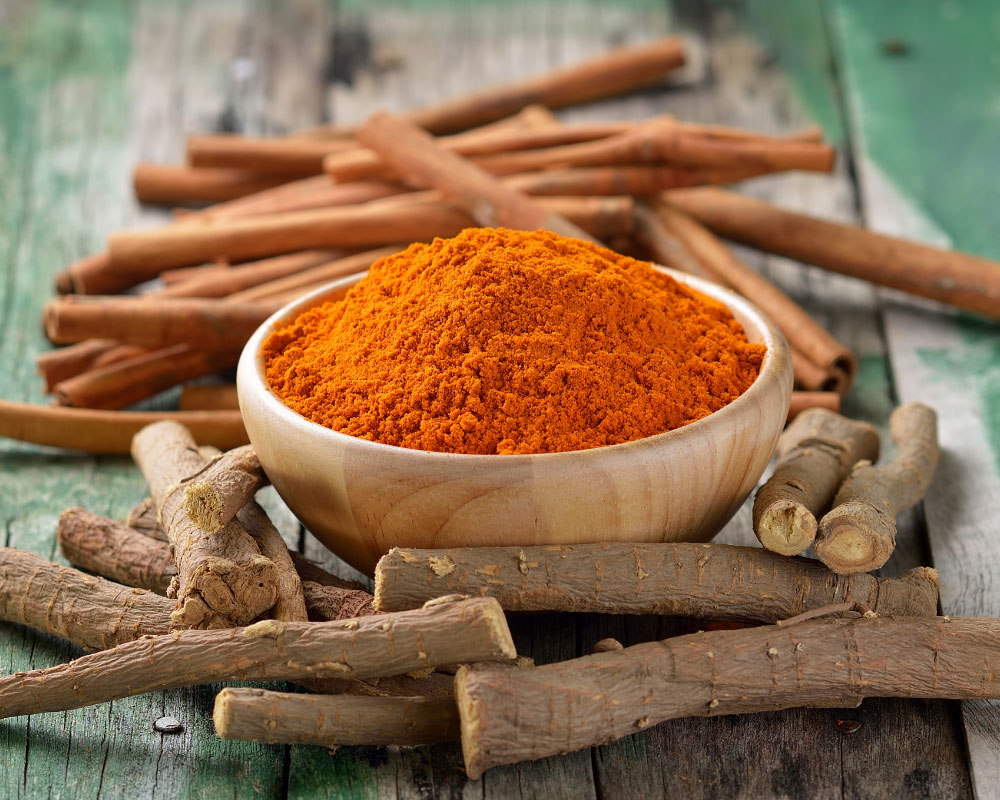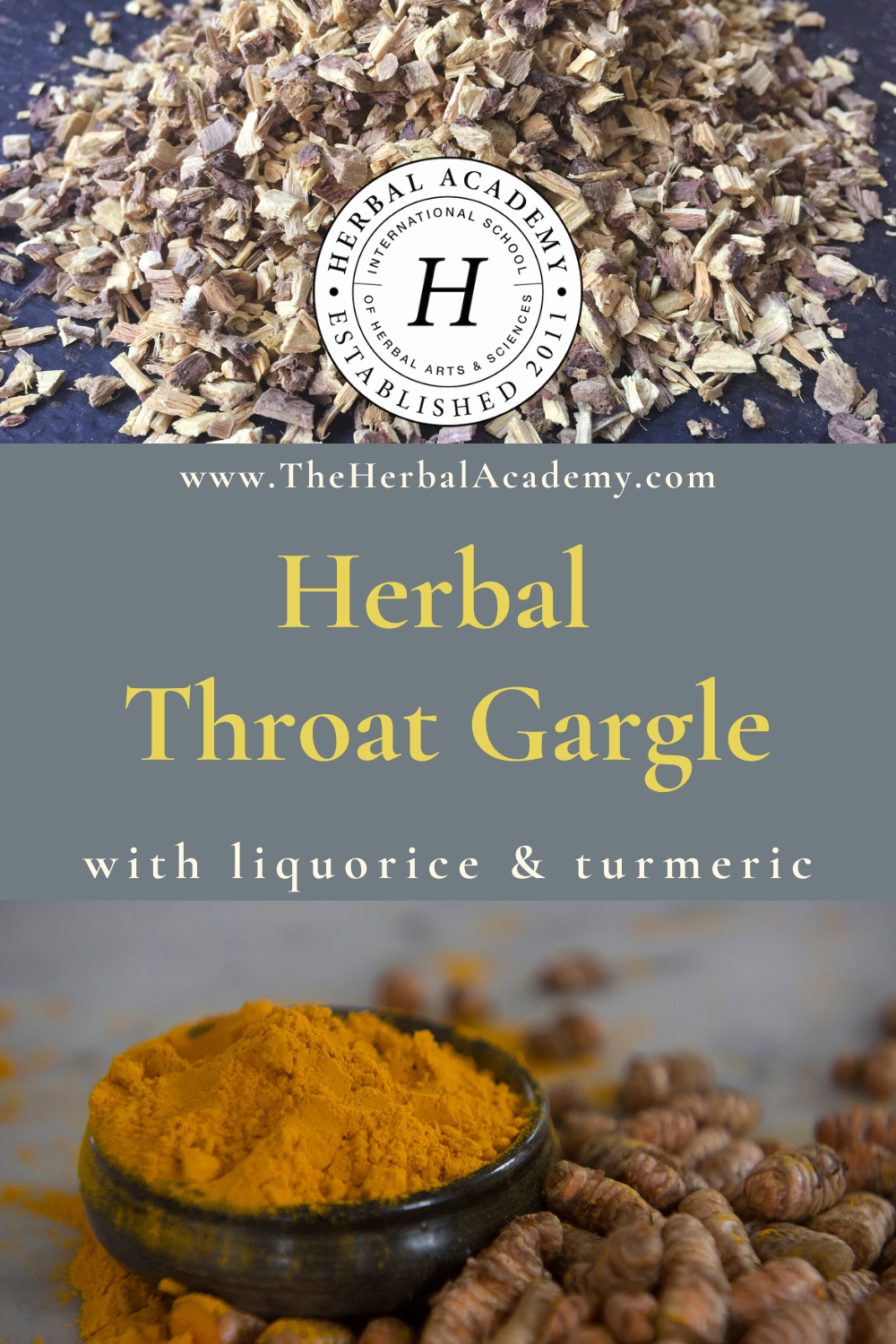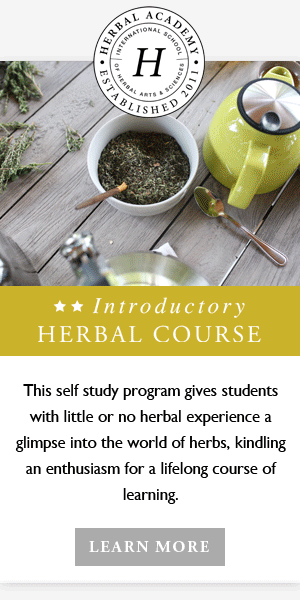
Herbal Throat Gargle Recipe: Triphala, Turmeric, and Licorice
One of the great things about this simple herbal throat gargle is that all its ingredients have multiple uses. So, if you keep these herbs in your travel kit, you may be able to use them for other purposes in addition to a throat gargle.
Triphala (Emblica officinalis), a combination of three fruits, is a wonderful digestive, shown to be effective as an antimicrobial mouthwash, significantly reducing oral streptococcus colonies (Peterson et al., 2017).
Curcumin, one of turmeric’s (Curcuma longa) chief constituents, has also been proven to have significant antibacterial effects (Mohammed & Habil, 2015). Plus, turmeric doubles as a cooking spice and digestive aid. This vibrant, yellow-orange rhizome boosts digestive and metabolic power and is helpful for breaking down proteins, particularly proteins in legumes (Dass, 2013).
Licorice (Glycyrrhiza glabra) is soothing to the throat due to its cooling, demulcent (moistening), and expectorant qualities. Licorice has many other uses, such as nourishing the adrenals and soothing inflammation in the gastrointestinal tract (Dass, 2013).
This herbal throat gargle is intended to clear irritants from the throat and has a moistening and antimicrobial effect as well. Yield: one 2 ounce tin. 1/2 teaspoon triphala (Emblica officinalis) powderDIY Herbal Throat Gargle
1/2 teaspoon licorice (Glycyrrhiza glabra) root powder
1/8 teaspoon turmeric (Curcuma longa) rhizome powder
8 ounces of water
In Closing,
If you want to add more items to your herbal medicine cabinet, consider the following recipes:
DIY Cough-Ease Cough Drops
8 Herbal Home Remedies for Colds & Flu
Homemade Honeysuckle Syrup

REFERENCES
Dass, V. (2013). Ayurvedic herbology east and west. Twin Lakes, WI: Lotus Press.
Enders, G. (2015). GUT: The inside story of our body’s most underrated organ. Berkeley, CA: Greystone Books.
Frawley, D. (2000). Ayurvedic healing: A comprehensive guide. Twin Lakes, WI: Lotus Press.
Mills, S., & Bone, K. (2000). Principles and practice of phytotherapy. New York, NY: Churchill Livingstone.
Mountain Rose Herbs. (2017). A little book of our favorite recipes. Retrieved from Mountain Rose Herbs.
Peterson, C., Denniston, K., & Chopra, D. (2017). Therapeutic uses of triphala in ayurvedic medicine. The Journal of Alternative and Complementary Medicine, 23(8), 607-614. https://doi.org/10.1089/acm.2017.0083
Najah, M., & Habil, N. (2015). Evaluation of antimicrobial activity of Curcumin against two oral bacteria. Automation, Control and Intelligent Systems, 3(2-1), 18-21. https://doi.org/10.11648/j.acis.s.2015030201.14
Shi Ni Loo, C., Siu Kei Lam, N., Yu, D., & Lu, F. (2016). Artemisin and its derivatives in treating protozoan infections beyond malaria. Pharmacological Research, 117, 192-217. https://doi.org/10.1016/j.phrs.2016.11.012
Siegmund-Roach, S. (2015). A guide to essential oil safety. Retrieved from https://theherbalacademy.com/a-guide-to-essential-oil-safety/







